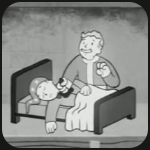|
Baby Babbeh posted:
We're small enough that everyone is in the same room. Editorial knows a whole bunch more about advertising than vice-versa. I can't quote rates, but we generally know who they're dealing with, especially since page layout also falls to editorial over here. We proof and format the hell out of press releases and verify everything we can, but as long as it's local and is not an advertisement, we're pretty friendly about running things. Sometimes it's a pretty thin line around here as it's a small enough area that there is generally someone people know and unless it is a blatant advertisement or is about something that is not local, we're generally pretty friendly. "Online content mill" can also apply to weeklies. Egads at some of what I see from my hometown rag. But yeah. Do not confuse advertising and editorial. To my darling feet, are you sending to the right place? Does editorial know that it exists? As Baby Babbeh mentioned, establish a relationship with editorial. Do not send a ton of stuff. We know and we do not like you for that. I speak as a "we" in this case since my newsroom is very small and I get to make these decisions on occasion. No matter how important and newsworthy your stuff might be, we do tire of it. At my place, we will send you over to advertising if you start making demands. If you want it a certain day and in a certain spot and in color, that's how you guarantee it. If you're nice and friendly and willing to work with our constraints, we'll toss you a few more bones. sugar free jazz posted:I have another question. Are journalists explicitly aware of their role as an agent of memory? Like, their role in creating and maintaining narratives for current and past events? I covered a team who won a championship in their sport a couple of years ago. As the sole hometown paper, I became increasingly aware that I would be pretty much be its lone voice. There is a school paper. There were highlight videos made. I'm the one in the permanent archive. That's a bit scary. I am also from a state whose prep sports were segregated eons ago. Not much was written about the school on the south side of town or those in other towns. You might say there is some personal spin, in that I am the one who researched all the material and is still, to a large degree, its keeper. Of course, it's true that I ask the questions. Sometimes I have no planned narrative going in and find an angle during the interview to use. Sometimes I do know what I want. Sometimes, it's both. I knew the memory of one of my subjects was a bit shot. I knew I could keep it in a basic framework, but that was one of those where you ask a question and just wait and see where it goes. That one went to meat packing. I do sports. Pure personal is limited to editorial columns, which I write on occasion. Some of those are quite goofy and occasionally there is an argument I want to make. Editing can control the narrative, but our editor likes our individual voices coming through. Editors can come and go pretty fast. All of us came before the editor and all of us were hired by different editors. Our backgrounds vary considerably.
|
|
|
|

|
| # ? Apr 23, 2024 14:17 |
|
Another ridiculously hard thing for TV news anchors is that because they're on open and not switched talkback in their earpieces*, they hear everything going on in the control room, and it can be difficult to talk when other voices are going on in your ear. This isn't a bad thing though, because it means you can potentially hear problems as they are developing, and be ready to tell the viewers if there's a VT not ready to play or if there's a communications problem on a remote link etc. *This is in the UK, I assume the same elsewhere as well given the nature of live broadcasts. More information what talkback is in a TV production sense can be read here, along with an excellent audio clip: http://www.bbc.co.uk/blogs/legacy/jakehumphrey/2009/07/an_earpiece_of_the_action.html Edit: Another great link about the subject: http://www.tvforum.co.uk/thenewsroom/presenters-hear-studio-12244/ thehustler fucked around with this message at 12:21 on Sep 5, 2014 |
|
|
|
Baby Babbeh posted:Advertising and Editorial are two separate departments that don't talk to each other. Advertising and Editorial are two separate departments that don't talk to each other. ADVERTISING AND EDITORIAL ARE TWO SEPARATE DEPARTMENTS THAT DON'T TALK TO EACH OTHER. If the main reason you buy ads is that you think it will get news stories written about you, you're wasting your money. My ad people come at me fairly often trying to get their clients into the news. There is no surer way to guarantee that I will not put something into a newscast than one of them coming to me, so there is that effect. I've also had a couple come at me upset when I cast a negative light on one of their clients. I just shrug because it isn't my problem. If the client doesn't like me covering something, they should stop doing that thing. That said, I don't dig around to purposefully cast our advertisers in a bad light, but I won't bury a story just because Company X helps pay the bills. Baby Babbeh posted:Except for the skeeviest of online content mills, nobody just passively reprints press releases in the paper. What happens is that if the story is interesting, it's assigned to a reporter, who will do their own research and then write their own piece, possibly (probably) reusing some of the information in your release. This takes effort, and time, both of which are in short supply at a news organization, so only the most interesting pitches get written about. The best way to think about a press release is that it's a heads up to a news org that something has happened or will happen that they might want to write about. They're under no obligation to write about it, and they're certainly under no obligation to print the release verbatim. Even if its a release pitching a contributed article and they bite, there's still no obligation to print it if it doesn't meet quality standards and they will probably edit for length and style if they do. There isn't anything about this paragraph that is false, though I'll add another exception the bolded part. Really small town papers will run entire unedited press releases, sometimes even with the boilerplate and the media contact person's full info. That's generally the case because the people that run those really small rags don't have much in the way of real journalism experience or training.
|
|
|
|
thehustler posted:Another ridiculously hard thing for TV news anchors is that because they're on open and not switched talkback in their earpieces*, they hear everything going on in the control room, and it can be difficult to talk when other voices are going on in your ear.
|
|
|
|
photomikey posted:On-air talent uses what's called a PL, producer line, where only the producer has the ability to talk to you. It's a push-to-talk function, so it's not always live, but even if they only say one or two words, i.e. "thirty seconds", it can be discombobulating to keep talking about something entirely different (i.e. the story) without pause. Perhaps there's differences between certain TV networks or anchors because every network in the UK uses open talkback and not switched as you describe. Hey it's all cool whatever works 
|
|
|
|
By far the most important skill for an anchor to have is an ability to think quickly on your feet. I've done some radio which is an order of magnitude less complicated than TV and even there it can be difficult with things being changed up and the producer in your ear. Anchors don't do as much research or writing as other journalists, but they have their own struggles. I have a lot of respect for people that can do that job. Regarding what I said earlier about access politics in tech journalism, I want to direct the thread's attention to this report 9 to 5 Mac did recently on Apple's PR machine, which nicely illustrates what I had to deal with. It's a bit long, and probably didn't need to be a 10 part series, but it's a really good look at what modern tech PR is like at the major firms. The tl;dr is they stonewall you on most stories if you aren't one of a very small list of friendly journalist, get pissy if you deviate from their narrative on stories they send you, and then if you write something they don't like they secretly get friendly bloggers to discredit you and your work. Obviously Apple's a bit extreme, but my question is how common that is in other coverage areas? It seems like organizations these days are devoting more resources to controlling the narrative and are a lot more brazen about it than the past, but it could be that tech is just ahead of the curve here.
|
|
|
|
thehustler posted:Perhaps there's differences between certain TV networks or anchors because every network in the UK uses open talkback and not switched as you describe. You work in the industry, and you've worked at more than one place? What you are describing is unheard of, archaic, and with technology, easy to avoid. I'm not saying that in the history of the world it's never happened, just that it is extremely uncommon.
|
|
|
|
I don't want this thread to die, so I'll ask a question. How did you get your start in the business?
|
|
|
|
Boba Fettuccine posted:I don't want this thread to die, so I'll ask a question. Gonna hop in here. Speaking from more of a photojournalist than a writer, so take it for what you will! Ironically, I was a student at Mizzou for three semesters as a Psychology major before giving that up and moving across the country. I didn't get into journalism and formal news until well after leaving such a huge journalism-focused school. But, I've been a photographer hobbyist for a long while, so throughout everything, it was just a matter of taking pictures and then taking more pictures. Mizzou is, if anything, a fairly pretty campus with lots to do, so it kept my enjoyment of photography from dying out. Really, thanks to the internet, it's been just a matter of getting work out from there. I'd landed a bottom-rung job at a major entertainment studio in L.A. after moving here, which gave me tons of production experience relevant to a lot more than just news, and being in a major city has enabled me to get to situations or events that people in other parts of the country wouldn't be able to go to. I went out to do some shots for a Wonder Woman pilot after work one day, and next thing I know, the LA Times blogroll is asking if they can link to my Flickr. Another time, I went out to take pictures of the space shuttle parade, uploaded it to iReport, and a quick email later, it was one of the headline pictures on CNN. It was really just one thing leading to another, which came to another thing, which led to getting published. Half of working as a photographer isn't about getting good pictures; it's about putting yourself in an area where good pictures can happen, and I somehow flopped around into that circumstance. Using those experiences got me my current job working for a fairly respected communications non-profit. It's not really field work at all, but we're the only photography space in Los Angeles that focuses on editorial content, so it provides a lot of opportunities. Our last show was National Geographic's birthday exhibition, so it was a great learning experience getting to meet with and learn from some of their biggest names just about every week for six months (including getting to interview Steve McCurry, which was an honor in itself). I'm going back to school now to try and do things "the right way." It's only one or two classes at a time in local community colleges while trying to work full time. I've thought about going back to Mizzou, as well, since LACC's journalism department is a hot mess that needs to reprioritize, and getting into USC's Annenberg School doesn't make sense to pay more and have to jump through more admittance hoops when I could just go back to a better school I've been to already. I also run a gaming news site called ActaDinerda, but that's only a few months old and can only be updated when I have a free moment until more writers get on board. I wouldn't recommend doing what I did. Jumping right into freelance work and hoping you land a job vaguely related to journalism is hard as balls, and I was extremely lucky to somehow navigate into this position. Plus, it's still a long, long way from being a field photographer for a major magazine like NG or Time or something. Going to school will get you those connections and, at the very least, a portfolio to show to others when the time is right. You'll have a lot more, and sometimes better, content when someone's holding your feet to the fire to get it done for a grade. Freelance is a lot of your own money and time, not mention forcing yourself to get motivated, for results that may or may not be useful to someone somewhere. P.S. - awesome thread and it's good to know there are still people trying to keep the fire alive against the cold, hard wastes of short attention spans and reality tv. Axel Serenity fucked around with this message at 06:52 on Sep 12, 2014 |
|
|
|
I got the classic unpaid summer internship, and turned that into a full (part-time) position. Question for the other reporters/producers: what was your 9/11 coverage like? We tried to avoid it, but I'm always curious as to what other stations do. Did you cry? Did you make other people cry?
|
|
|
|
FactsAreUseless posted:I got the classic unpaid summer internship, and turned that into a full (part-time) position. Do you mean the anniversary coverage? At my (Canadian) station I made a couple of mentions of it towards the end of a couple casts, all wire copy. Had a quick localized story on it earlier today, that's about it. In that sense, I treated it about the same as the D-Day anniversary back in June. A couple mentions, but didn't belabour the point.
|
|
|
|
FactsAreUseless posted:Question for the other reporters/producers: what was your 9/11 coverage like? We tried to avoid it, but I'm always curious as to what other stations do. Did you cry? Did you make other people cry? My station decided in 2008 not to show the video anymore. We're in a town with a large Army base, so we acknowledged the day and chose a local memorial to cover. There's a good number of active duty military families in town, too, so that means we will likely always mention the day an have a reporter turn a tasteful package. Another station in our market lead their 5 with the video of the airliner hitting the tower *ugh*. How did your station approach it?
|
|
|
|
Waitwaitwait, they still *show the video of the planes*? Years later?  It is fortunate I live in the New York media market, in this regard. It's wall to wall 9/11 on the day, but nobody ever shows scenes from the day anymore. You hardly need to, the memory is hard enough.
|
|
|
|
Are most copy editors just reporters doing a lateral job function or are they specifically hired because they're hardcore excited about grammar and InDesign/InCopy?
|
|
|
|
Depends on the publication, really. Smaller publications are sharing more and more work, in which reporters will also be doing copyediting or even their own design work (The O.C. Register I think does this.) Most of the larger publications and magazines will have their own editing team that is completely separate from the reporters. At something like National Geographic, where photographers and writers are usually not even remotely in the field at the same time, an editor who is solely focused on putting those stories together is crucial. There's enough content there that editing/copyediting/layout is a job on its own, and a great editor can make or break a feature story based on how they put all those pieces together. Sometimes, the editors got their jobs without ever doing a single reporting job just because they have a great eye for what makes a good story or picture that fits with a publication's mission.
|
|
|
|
Axel Serenity posted:Sometimes, the editors got their jobs without ever doing a single reporting job just because they have a great eye for what makes a good story or picture that fits with a publication's mission. Great! Now to just break into this niche... I got a degree in English and now do a lot of copy editing for a media post-production company but I'd love to eventually get into the news realm. I never really liked my literature classes but I loved my grammar and orthology classes as well as copy editing for my college's newspaper. I did reporting too, but I don't particularly like flexing my creative bone in that sense. I'd much rather help someone else's work be the best it can be. In short, I like taking the red pen to paper. 
|
|
|
|
Jedi Knight Luigi posted:Great! Now to just break into this niche... Well, if you have the option, maybe go back and take a couple classes, making sure you tell the professor you want to be a section editor. Depending on the size of the class, you may still have to do reporting, but you'll get a chance to show potential employers "This is what I did with my section." If you live in a larger market, there are usually a ton of magazines and publications looking for editors as they try to build an audience. You might not get paid much, but it's all about having work you've done to show others and building that network. Show people you can have a focus, mission, etc. Also that you can manage/fact check a bunch of different stories and reporters without getting sued. Everyone wants to be a reporter, but copyediting is kind of a specialty thing that usually doesn't garner much interest. If you can land a couple gigs doing it, you'll probably have a lot of luck. e: alternatively, go to Creative Convention and fix errors in goon novels for mad money. Axel Serenity fucked around with this message at 02:40 on Sep 13, 2014 |
|
|
|
Spacewolf posted:Waitwaitwait, they still *show the video of the planes*? Years later? Ole number 1, eh? I can imagine that's all on anyone's mind that day. What kind of stories did you run? Axel Serenity posted:If you live in a larger market, there are usually a ton of magazines and publications looking for editors as they try to build an audience. You might not get paid much, but it's all about having work you've done to show others and building that network. Show people you can have a focus, mission, etc. Also that you can manage/fact check a bunch of different stories and reporters without getting sued. This is good advice. I got my start writing and editing for a weekly rag in college covering school board, city council, and county commission. It was dry and mostly boring work, but I made enough of a name for myself and got tons of experience. When I applied at my station, I beat out others who went to better schools than I did simply because of my experience at that rag.
|
|
|
|
I should be clear: Not a journalist, just a viewer.
|
|
|
|
How much communication is there between the writer and the editor once a piece is submitted? If the editor is going to be making changes (clarity, length, etc.), do they generally run them by you first? I'm curious because a few weeks ago, I wrote a piece for the local Deaf community about an event they held, and submitted it to one of the newspapers that covers our area. Apart from telling me that they liked it and were going to run it, I didn't hear much from them, and so I assumed it would run pretty much unaltered. When it came out, the editor had made several changes without consulting me, including replacing instances of "deaf/hard-of-hearing" with "hearing impaired," using a subtitle that referred to deaf people as disabled (both major faux pas), and replacing instances "Deaf" with "deaf" despite their different meanings. To the Deaf community, it looked like I was just another hearing rear end in a top hat who could never understand them, and I ended up taking some serious blowback from my Deaf friends. Am I wrong to believe that the editor should have consulted me, especially since it's my name in the byline?
|
|
|
|
JohnSherman posted:How much communication is there between the writer and the editor once a piece is submitted? If the editor is going to be making changes (clarity, length, etc.), do they generally run them by you first? I'm curious because a few weeks ago, I wrote a piece for the local Deaf community about an event they held, and submitted it to one of the newspapers that covers our area. Apart from telling me that they liked it and were going to run it, I didn't hear much from them, and so I assumed it would run pretty much unaltered. When it came out, the editor had made several changes without consulting me, including replacing instances of "deaf/hard-of-hearing" with "hearing impaired," using a subtitle that referred to deaf people as disabled (both major faux pas), and replacing instances "Deaf" with "deaf" despite their different meanings. To the Deaf community, it looked like I was just another hearing rear end in a top hat who could never understand them, and I ended up taking some serious blowback from my Deaf friends. Am I wrong to believe that the editor should have consulted me, especially since it's my name in the byline? It depends on the change. Mostly, my issues are grammatical, such as leaving an 's' off or omitting 'the.' Length is rarely my problem, though for another writer, it is. I'm not sure of the messages the other writer gets. If it's a matter of confusion, we're asked. I often have to handle press releases or submitted stuff. If it's through email, I usually just inform the person that sent it that it's been received. Then I go about correcting it for Associated Press (AP) style and clarity. If it's a game write-up, sometimes I rearrange it so that it has a good build. Unless it's something major, like a missing name or forgetting to mention who they were even playing, I stick it on the page once it's cleaned up. Newspaper articles aren't written like term papers and AP style is its own beast. There are big books printed about how things should be dealt with in print, what terms are considered derogatory and dedicated entire separate chapters on weather events. It's not always up-to-date. My last book, printed in 2008, reminds everyone that it is marijuana and not marihuana. Internet terms were extremely outdated and we tend to ignore those where I am. It sounds like the editor in this case was trying to be technically correct, but didn't understand or know the nuances and AP Stylebook would certainly have not been a help on that. Did you tell them you had experience with the Deaf community?
|
|
|
|
JohnSherman posted:How much communication is there between the writer and the editor once a piece is submitted? If the editor is going to be making changes (clarity, length, etc.), do they generally run them by you first? I'm curious because a few weeks ago, I wrote a piece for the local Deaf community about an event they held, and submitted it to one of the newspapers that covers our area. Apart from telling me that they liked it and were going to run it, I didn't hear much from them, and so I assumed it would run pretty much unaltered. When it came out, the editor had made several changes without consulting me, including replacing instances of "deaf/hard-of-hearing" with "hearing impaired," using a subtitle that referred to deaf people as disabled (both major faux pas), and replacing instances "Deaf" with "deaf" despite their different meanings. To the Deaf community, it looked like I was just another hearing rear end in a top hat who could never understand them, and I ended up taking some serious blowback from my Deaf friends. Am I wrong to believe that the editor should have consulted me, especially since it's my name in the byline? Depends on the paper, assignment, length of project, and a ton of other things. If you're submitting freelance (which it seems you did here) or the article seems otherwise fine to the editor from a developmental standpoint, they will probably do the copyediting and cuts without consulting the reporter. As for your changes specifically, it ultimately comes down to what the AP Stylebook says. It doesn't capitalize "deaf" in the book, but it does look like maybe using "disabled" perhaps went too far. Editors handle a lot of different stories of varying interest and subjects, so it's nearly impossible to know the unwritten rules within a particular community for every story. If the facts of the story look right, most of the phrasing and grammatical rules will be consulted via the AP Stylebook and that will be that, which seems to have happened here. Unfortunately, the listing in the book for how to write about disabilities is fairly broad and open aside from really blatant rules (like calling someone mentally retarded). It's not something he would have consulted you on, but, yes, he could have done more research into making sure he didn't upset the people involved in the story. e: If your friends are really upset, have them write to the publication. If the paper is trying to be fairly credible, they tend to take that stuff seriously since it not only paints the paper in an insensitive light but also may affect other stories. Most editors will want to make sure they're getting things in the paper correctly since, well, that's kind of their whole job. Axel Serenity fucked around with this message at 03:42 on Sep 15, 2014 |
|
|
|
I am more of a visual journalist. but in my experience writing, once you submit a piece, the editor is now in charge and the piece is out of your hands. JohnSherman posted:the editor had made several changes without consulting me, including replacing instances of "deaf/hard-of-hearing" with "hearing impaired," using a subtitle that referred to deaf people as disabled (both major faux pas), and replacing instances "Deaf" with "deaf" despite their different meanings. If you use the dictionary definition of "disabled" ("having a physical or mental condition that limits movements, senses, or activities"), deafness seems to fit it. I can't see why deaf would be capitalized anywhere. Something being a "faux paus" in your community doesn't mean you get to re-write the rules for everyone else. Some time ago, the Marines decided they weren't to be called "troops" anymore, they were just "Marines". So anytime anyone ever writes about how many troops are deployed somewhere, they're supposed to say "5,000 troops and Marines". They have had very little success with this, and they do a lot of complaining about it. Still, the definition of a "troop" is a military unit, and regardless of how special the Marines consider themselves, they don't get to dictate how society refers to them. That said, in the Marine Corps Daily Dispatch (or, whatever) they can sure refer to themselves however they want. But everyone else calls it like it is. Likewise, in the Deaf Times, you can ban the term "hearing impaired", capitalize Deaf all you want, and you can (and should!) differentiate between deaf and hard-of-hearing. But in a mainstream publication, there is not that level of detail. I agree with the previous poster's suggestion that when your deaf friends give you poo poo, you tell them you didn't use those terms and encourage them to write a letter to the editor. Similarly, even though society doesn't differentiate between the various terms, you point out to your editor that your deaf friends consider the terms distinct and sometimes offensive.
|
|
|
|
To add a voice to the chorus above me, here is a maxim from one of my journalism teachers, "even when the stylebook is wrong, the stylebook is right." Stylebook says avoid capitalizing words that aren't proper nouns in the middle of a sentence, so it is "deaf" and not "Deaf". And sometimes capitals will be forced on a word, like "IPhone" at the start of a sentence. Apple wouldn't ever do that in their material, but the stylebook doesn't care what Apple wants. I think it was within the last five or so years that the stylebook (Canadian Press anyway) allowed iPhone to be used at all. There were times when it recommended IPhone all the time.
|
|
|
|
I'm reading up over the thread but I wanted to post my own experience, I'll try to keep it short. I got to college in 2008, made news editor of the college paper, did a couple internships with some weeklies in the area. I was not top of my class by far. Got a messenger job at the big daily in town which I thought would get me perhaps a part time job there when I graduated in 2011. Of course it didn't. Got a full time reporting job a group of weeklies in the metro area and have been doing it for mostly 3 years (quit for some family stuff and moved around for awhile, moved back and got my job back). I interview people from anywhere about their record size pumpkin to a police involved shooting. I take all my own photos but have to use my own gear because the paper has no photo budget (just use your iPhone lol) and get to shoot from helicopters sometimes. I'm overworked, underpaid, I eat ramen and smoke like a chimney. I drink a lot because my boss stresses me the gently caress out because he's bipolar as poo poo. But I love my job, it's the only thing I'm good at. I'm probably leaving here soon to work at a bigger paper that has a more professional setting, but my friend said I can be a content creator for a company that writes for blogs whenever I decide I'd want to make a living wage. It's a tough decision: do I go on to a better J job but still make poo poo for money, or ditch journalism and make more than TWICE what I make now at some firm? I'm really leaning towards the latter because I could get my J-fix by starting a blog and covering local concerts and art shows in my part of town. And I really want to not be broke all the time now.
|
|
|
|
photomikey posted:Advertising and editorial are two different things. Advertising is where you pay $ to have your content published. In that case, you spec exactly what you want, provide camera-ready art, and pay the bill. I know the difference between the two fields, paid v earned pieces. I would just think, like your middle ground, that with the consistent (not big, but consistent) money we put in, we'd get more coverage. It's much of the same thing, where they get covered, and we don't. We opened up a new wing, they opened up a new floor in their center. They got the coverage. I put it on our facebook page. Big whoop. It's not the AP, Globe, or the Herald I'm trying to target. One thing that I also noticed is that they have a "Special Reporter to the (Publication)" as the person with this other place's articles. Dare I find out where this person works at? What you're advocating is follow up, more interesting stories (I wouldn't say mine are more interesting than others'), and be a buddy? They already know who I/we are. I actually think just because of the scope, we're more friendly than some people might be. It just sucks for me because this part of my job has only so much success.
|
|
|
|
my darling feet posted:One thing that I also noticed is that they have a "Special Reporter to the (Publication)" as the person with this other place's articles. Dare I find out where this person works at? Are you sure that the piece isn't a paid for advertorial?
|
|
|
|
nielsm posted:How right am I in getting angry at journalists letting politicians/other bigwigs dodge their interview questions? The interview is the opportunity for the politician to tell their side of the story. It's not like you rely on them to make your case. I'm sure the reporter/producer is upset that the salacious truth didn't emerge. What are we going to do, twist their arm (literally)? Giving an interview isn't mandatory and maintaining good relationships means you don't want to burn bridges with someone you'll need to interview sometime in the future. photomikey posted:My 20 years in US broadcast media have shown me that there are some questions that some people won't answer. You can ask them anyway, and they can deflect, but asking again doesn't make them realize the error in their ways and then come clean - they just deflect again. Don't get me wrong, sometimes I ask again anyway, but my being argumentative doesn't help anybody. I just show them deflecting the question and you, the viewer, have to draw your own conclusions. This. sugar free jazz posted:My brother is part of an China academic listserv... The article isn't written for someone who has background in Chinese history, the article is written (at an 8th grade level) for someone who has no idea about the story, by someone who probably had very little time to become an expert on Chinese history. So, props to your brother for thinking critically. my darling feet posted:I work for a health center in a major city... I like to write PRs and submit them as articles about big things that happen... The problem is they rarely get published... Yes, yes, and yes. Reading lots of articles that are accepted and imitating their style isn't a bad thing, since it's obviously getting them published. Keep trying! Volmarias posted:What do news anchors on "6 o'clock news" programs actually do, aside from reading a teleprompter? I'm assuming that they're journalists who have worked their way up, but at that point I assume that they don't do their own research anymore. Anchors get paid big $$$ to do less work. In return, they have to read the prompter, look good, emcee events, be the face of the station, conduct themselves accordingly, etc. It's a cakewalk but everyone's looking at you, so you better cakewalk well. sugar free jazz posted:Are journalists explicitly aware of their role as an agent of memory? Like, their role in creating and maintaining narratives for current and past events? Yes. A little, if it's relevant. Usually it's not. Absolutely correct. We're too busy turning stories to spin them, too. We don't control "narrative", news happens. Editors expect a decent story, though. Yes. Absolutely yes, welcome to local news. Boba Fettuccine posted:How did you get your start in the business? As a photojournalist: I decided what I wanted to do before graduating high school. I earned a "film certificate" on my HS diploma. Got accepted into J-school my sophomore year. The following two summers, I interned as a video editor at a small (market 150+) station where I had a family tie. Got a spring internship at my college station (market 120) my junior year where I impressed some people. Spent all of my junior and senior years working early mornings as a production assistant then going to school in the evening. Graduated school in 4 years and immediately was hired as the evening video editor at the station. After a year I was morning editor/photographer. Then I was hired into a larger market (market 25) as a photojournalist for the last 5 years. And that's how I Bio-Hazard fucked around with this message at 09:21 on Sep 18, 2014 |
|
|
|
I hate to see this thing die. Do any of you writers have to do page layout? I'm in a small enough operation that I generally do the page for my specialty, but we've so short-staffed this week that I've had to do nearly everything. I don't have to work tomorrow and I'm sure as hell not setting an alarm.
|
|
|
|
RC and Moon Pie posted:I hate to see this thing die.
|
|
|
|
So between "its not my job to actually find the truth, if they want to lie in an interview," "it's not important to actually be correct because the readers don't understand the difference" and "of course we re-word press releases," why do you think that the death of American journalism is a bad thing?
|
|
|
|
Arnold of Soissons posted:So between "its not my job to actually find the truth, if they want to lie in an interview," "it's not important to actually be correct because the readers don't understand the difference" and "of course we re-word press releases," why do you think that the death of American journalism is a bad thing?
|
|
|
|
FactsAreUseless posted:What are you even talking about? I'm trying to ask why anyone feels sympathetic to the plight of the news man, when this whole thread is news men unashamedly saying over and over what a slack rear end job they do.
|
|
|
|
Like, to be specific:photomikey posted:My 20 years in US broadcast media have shown me that there are some questions that some people won't answer. You can ask them anyway, and they can deflect, but asking again doesn't make them realize the error in their ways and then come clean - they just deflect again. Don't get me wrong, sometimes I ask again anyway, but my being argumentative doesn't help anybody. I just show them deflecting the question and you, the viewer, have to draw your own conclusions. that's the opposite of journalism and is just being a forwarder for talking points and press releases, so why even bother having the reporter exist? e: or the guy who said "I know its factually incorrect and wrong to use "cloud" this way but my audience doesn't so gently caress it" Arnold of Soissons fucked around with this message at 15:50 on Sep 28, 2014 |
|
|
|
I've been talking about those problems since the beginning of the thread. If you want a reason to care about the "plight of the news man," here you go: when reporters are underpaid, overworked, and offered lovely benefits and hours, you're not going to attract the most talented people. I talked earlier about how people who are paid to manipulate the news (PR people, etc.) often come from the same background. They apply their talents someplace where they'll be better paid, trained, and supported. What you have is a self-feeding cycle: journalists are bad, therefore we shouldn't try to get good journalists. Even good journalists struggle to have the time and resources to produce good reporting. 24-hour news cycles are bad for journalism. The need to publish as quickly as possible to get your stuff on the web first is bad for journalism. News being considered a profitable commodity instead of a public good is a problem: why pay for good reporting when I can sell as much ad space/time with lovely press release regurgitation? What we need to address the problem is three things: reporters with the training, expertise, and pay to attract talented people and keep them. News organizations that hold journalists to high standards and give them the resources to reach them. Audiences that have the ability to recognize good reporting and demand it. In order to do that, we're going to have to start thinking about journalism differently in this country. Your argument is identical to the "public school teachers are bad, so we should not support public education" argument. It's understandable to be frustrated with bad reporting, and there's tons of it out there now. You're welcome to call it out in the thread, it's a valuable discussion to have. But saying that makes the whole idea of good journalism pointless or impossible is short-sighted.
|
|
|
|
Arnold of Soissons posted:e: or the guy who said "I know its factually incorrect and wrong to use "cloud" this way but my audience doesn't so gently caress it" I, too, want
|
|
|
|
Arnold reminds me of the people who would walk up to you on the street and ask you what story you were covering. Then, no matter what you said, they'd say "HA!! What, slow news day??!?!?!!??!!!111one". It could be a school bus accident that maimed 40 kindergarteners or a waterskiing squirrel, but seriously, every loving time... "WHAT, SLOW NEWS DAY??"
|
|
|
|
"Hah, slow news day?" is the "It didn't ring up? That means it's free!" of the journalism world.
|
|
|
|
"I'm ready for my closeup" is the phrase I most loving hate. It is usually uttered by someone who has walked up in the middle of an interview and positioned themselves directly behind the interview subject. I loving hate people.
|
|
|
|

|
| # ? Apr 23, 2024 14:17 |
|
So, on a less baiting note, what do you all think about comedy news shows like The Daily Show, Colbert Report, and Last Week Tonight? They're not Big J Journalism, but they seem to do a great job of educating and informing while entertaining.
|
|
|

















